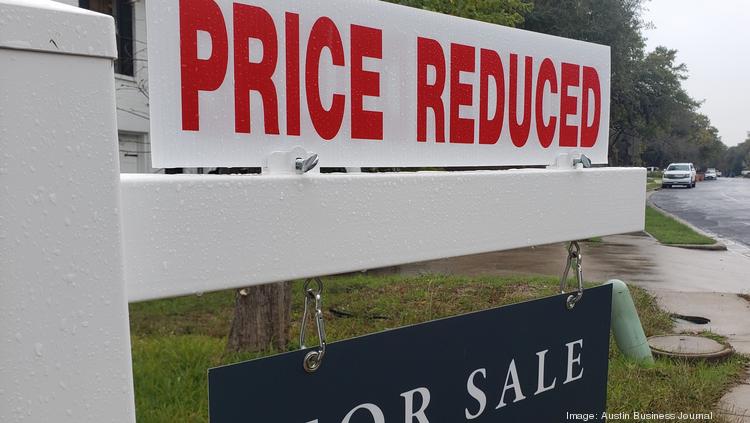
Austin Business Journal writes, "after a wild couple of years, the Austin-area housing market could be in store for a relatively modest 2023.
Realtor.com predicted that the volume of local home sales will actually fall 6.6% next year, compared with 2022, while prices will grow 3%.
Ashley Jackson, president-elect of the Austin Board of Realtors, said there's hope that more moderate adjustments are a sign of Austin's return to a normal, seasonal market — as opposed to the dramatics seen in 2021 and part of 2022, when Austin became one of the top pandemic relocation destinations.
Median home sale price in the Austin metro peaked at a record $550,000 in April and May, but had fallen to $474,990 by October, according to ABOR data. Winter is typically a slower realty season, so agents think this is a sign that the usual rhythms of the housing market are taking hold once more.
"I expect you'll still see that we have some appreciation trending up year over year [for home prices] and you’ll see year-over-year growth," Jackson said. "But, I do expect that we'll continue to just kind of stay around where we are, and perhaps go up, median price-wise, in the spring."
The Austin area saw a 29% year-over-year decrease in closed sales in October. Jackson predicted that 2023 would see "perhaps a small decline in sales growth," noting the year-over-year comparisons are so stark because 2021 was a pandemic outlier.
Austin had 3.2 months of inventory in October, a far cry from the six months needed for a balanced market, but Jackson said this was a good time for buyers — in fact, she recently entered the market herself.
"It's great to be a buyer, because we've got so many options out there right now," Jackson said. "[Buyers aren't] used to that. We haven't had it in a few years. Now, we don’t have to desperately choose the only house that's for sale in a neighborhood."
For the nation's 100 largest metros, Realtor.com predicted sales would climb fastest in cities such as El Paso, Columbia, South Carolina; and Hartford, Connecticut, all with growth of 6.5% or more.
In contrast, Austin's predicted 6.6% deal volume decline ranked No. 74 out of the 100 metros.
Meanwhile, Realtor's prediction that Austin's home prices will rise 3% ranked No. 85th overall, tied with Harrisburg, Pennsylvania, and just ahead of Orlando, Florida.
One of the pressing issues for Austin’s housing market in 2023 will be the development of new homes, Jackson said — a constant pain point for the past few years.
"The important thing to know right now is we're not adding a lot of homes to the Austin area," she said. "So when interest rates go down a little, you're going to see that demand spike back up, and we haven't added any new houses."
But development in Austin is slow and expensive.
Development fees within the city are drastically higher than in other major Texas metros, according to a July report by the Texas Real Estate Research Center at Texas A&M University.
That report looked at two development models — a 40-acre, 200-home suburban development and a one-acre, four-home infill development — and found that Austin outpaced Dallas-Fort Worth, Houston and San Antonio for development fees in both.
In the suburban model, Austin was far and away the most expensive among the state's big cities with development fees of $18,168 per unit. San Antonio ranked No. 2, with a maximum development fee of $11,830.
For the infill development model, Austin was at the top with estimated fees of $41,303. Across Dallas, Fort Worth, Houston and San Antonio, fees ranged from $5,014 to $15,180. The average among those big cities was $14,401.
Developing in Austin is a slow process, as well, and construction delays were a major point of contention at July’s Central Texas Housing Summit.
Constant regulatory changes in Austin are a major barrier to development, said David Glenn, senior director of government relations with the HBAGA.
"Austin is notorious for changing regulations at a rapid pace," he said at the summit.
Glenn said that development processes that take months to complete in Austin are often completed in days in San Antonio.
Relief could come with some changes working through Austin City Hall. City Council has voted to simplify the permitting process for so-called "missing middle" housing such as duplexes and fourplexes, and is also considering allowing residential construction on commercially zoned land."
Source: Austin Business Journal
Written by: Cody Baird
Published: December 2, 2022

Leave A Comment